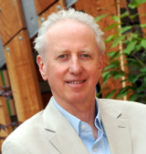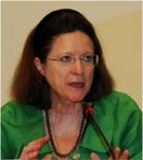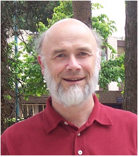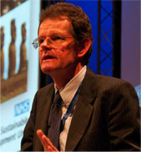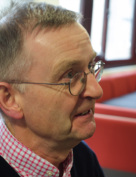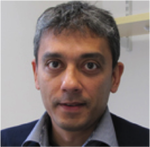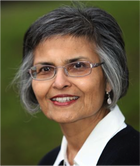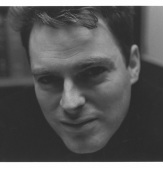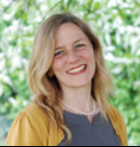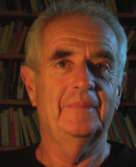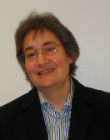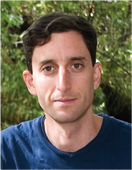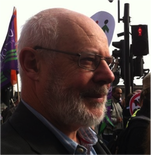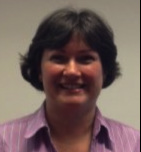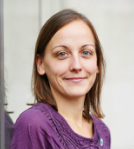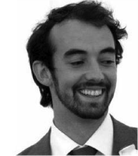Plenary and panel speakers
|
|
Prof. Sir Andy Haines is Professor of Public Health and Primary Care at the London School of Hygiene and Tropical Medicine (LSHTM), having been its Director for nearly 10 years until 2010. He has worked part-time as a GP in London for many years, and as a consultant epidemiologist. He has also worked in Nepal, Jamaica, Canada and the USA and been a member of a number of national and international committees, including the MRC Global Health Group (chair) and the WHO Advisory Committee on Health Research. Andy was a member of Working Group II of the UN Intergovernmental Panel on Climate Change (IPCC)’s second and third assessment reports and is currently review editor of the fifth report’s health chapter (but is not speaking on behalf of the IPCC at this conference).
Prof. Virginia Murray was appointed as Head of Extreme Events and Health Protection, Public Health England, on 1 January 2011. With the Extreme Events team, she is developing evidence base information and advice on flooding, heat, cold, volcanic ash, and other extreme weather and natural hazards events. Appointed as Visiting Professor in Health Protection, MRC-HPA Centre for Environment and Health, Imperial College and King’s College, London (2004), she has published widely. She is vice-chair of the UN International Strategy for Disaster Reduction (ISDR) Scientific and Technical Group and is one of the members of the UNISDR Advisory Group for the Post-2015 Framework for Disaster Risk Reduction. Prof. Andrew Watkinson is an environmental scientist at the University of East Anglia, who was until recently Director of Living With Environmental Change. This initiative aimed to optimise the coherence and effectiveness of UK environmental research funding, with the specific aim of ensuring that decision makers in government, business and society have the foresight, knowledge and tools to mitigate, adapt to and benefit from environmental change. Prior to becoming Director of LWEC he was Director of the Tyndall Centre for Climate Change Research where he took a particular interest in flooding and the impacts of climate change on the coastal zone. Dr. David Pencheon is a UK trained doctor and currently Director of the Sustainable Development Unit for the healthcare, public health and social care systems in England. He was previously Director of a Public Health Observatory in Cambridge from 2001 to 2007 and has worked as an NHS doctor, a joint Director of Public Health, a Public Health Training Programme Director in the East of England, with the NHS R&D programme, and in China in the early 1990s with Save the Children (UK). His main areas of research and publication are, amongst others: sustainable development, large-scale transformational change, health and climate change, underpinning action and policy with good evidence. He was awarded an OBE in 2012 for services to public health and the NHS. Prof. Tim Lang has been Professor of Food Policy at City University's Centre for Food Policy since 2002. He was a hill farmer in Lancashire, North of England, in the 1970s and js engaged in public and academic research and debate about food policy. He’s been an advisor to many bodies, from the World Health Organisation and European Commissioner for the Environment to the Mayor of London and NGOs. He was Commissioner on the UK Government’s Sustainable Development Commission (2006-11). He is co-author of Ecological Public Health (2012), Food Policy (2009), the Atlas of Food (2008) and Food Wars (2004). Email: [email protected] Dr. David McCoy is a public health physician. He spent his first fifteen years working in clinical medicine and health systems development, mostly in South Africa. Since then he has been based in London, working on various aspects of ‘global health’ as an academic and NHS physician. He is currently senior clinical lecturer at Queen Mary University London and Chair of Medact, a London-based global health charity. He was an author and co-Managing Editor of the first two alternative world health reports (Global Health Watch) and is a Steering Committee member of the Peoples Health Movement. Prof. Mala Rao OBE is Professor of International Health at the University of East London and Honorary Consultant, Public Health England. She established the Public Health Foundation of India's first Institute of Public Health, as its founding Director, under the aegis of the UK Global Health Strategy. Prior to that, she was Head of Public Health Workforce and Capacity at the Department of Health, London for 5 years. She was previously a Director of Public Health for many years. Mala has been an active campaigner since the 1990s for greater awareness of the links between climate change, sustainable development and health. She is widely published and has lead a number of reviews of the health impacts of climate change. She instigated, part-wrote and co-edited the highly commended 2009 book, ‘The Health Practitioner’s Guide to Climate Change’. She led the writing of the health chapter in the Government of India's 2010 Assessment of the Impacts of Climate Change and DFID's assessment of the state of preparedness of Indian states to address the health impacts of climate change. Her video on the impacts of climate change on water is used as an educational resource in vocational training across the UK. She has addressed audiences worldwide, on the need for urgent climate action, and most recently at the 4th Asia Pacific Conference on Public Health held in Vietnam . Prof. Mark Maslin FRGS, FRSA is a Professor of Climatology at University College London. He is a Royal Society Industrial Fellowship, Executive Director of Rezatec Ltd and Director of The London NERC Doctoral Training Partnership. Maslin is a leading scientist with particular expertise in past global and regional climatic change and has publish over 120 papers in journals such as Science, Nature, and The Lancet. He has been PI or Co-I on grants worth over £43 million Maslin's popular book “Global Warming: A Very Short Introduction” by Oxford University Press has sold over 40,000 copies and this has been followed by “Climate: A Very Short Introduction” in the same series. Maslin was also a co-author of the seminal Lancet report ‘Managing the health effects of climate change’ and the Lancet review paper in 2013 on the health links between Population, Development and Climate Change. Rachel Stancliffe is the founder and Director of the Oxford-based Centre for Sustainable Healthcare (CSH). She graduated from Oxford in Human Sciences and then from the London School of Economics, and worked in public health initiatives in the UK, Georgia and Kazakhstan before helping to develop The Cochrane Library. The CSH runs several projects related to different aspects of healthcare sustainability, including education for sustainable healthcare, and has an extensive network of committed healthcare professionals, educators, patients and health policy-makers. She is motivated by making the best use of evidence and by creative partnerships to achieve change. Dr. Robin Stott worked for 27 years as a consultant physician in Lewisham University Hospital. For much of this time he was also site dean and medical director. He has a life long commitment to understanding and seeking to improve the economic, environmental and social circumstances which support health. In this context he has served as chairman of the International committee of the International Physicians for the Prevention of Nuclear War, chairman of Medact, and member of the London Sustainable Development Committee. He is currently the co-chair of the Climate and Health Council (CHC) and Chairman of C3 Collaborating for Health. He is married and a father of two and grandfather of two more. He loves cycling, tennis and Tai Chi, and still frightens the cat with his clarinet playing. Dr. Robert Biel teaches Political Ecology and Urban Agriculture at UCL Development Planning Unit. A practicing urban farmer, he experiments with a no-till organic method combining high productivity with low input of labour. He helped initiate the ABUNDANCE project for food-growing on low-income housing estates, part of UCL's UrbanBuzz programme, and recently presented to Parliament on the impact of peak oil for food security. In his published work, notably The Entropy of Capitalism (2012: http://bit.ly/XiueL2), Biel employs general systems theory to reveal the current crisis as a phase in which capitalism begins to parasitise upon the chaos it itself creates. Karen Newman worked for the International Planned Parenthood Federation (IPPF) between 1982 and 2003, focusing in the later part of that time on policy and governance issues, with a special responsibility for sexual and reproductive health and rights. She was one of the main architects of the IPPF Charter on Sexual and Reproductive Rights. Since 2003 she has carried out a range of consultancy work, including assignments for DFID, WHO, UNFPA, Interact Worldwide, Amnesty International and IPPF Arab World, East and South East Asia and Western Hemisphere Regions. Karen was a member of the WHO Gender and Rights advisory panel between 2003 and 2010, which she co-chaired from 2007. Dr. Ilan Kelman (http://www.ilankelman.org) is a Reader in Risk, Resilience and Global Health at University College London, England. His overall research interest is linking risk, resilience and global health, including the integration of climate change into disaster research and health research. He has three main areas of interest: disaster diplomacy and health diplomacy http://www.disasterdiplomacy.org; island sustainability http://www.islandvulnerability.org; and risk education; http://www.riskred.org. Simon Birkett is the Founder and Director of Clean Air in London and founded this cross-party organisation in 2006. Its mission is to achieve full compliance with WHO air quality guidelines, in London and elsewhere. In 2009, Simon accused the previous Government of one of the biggest public health ‘cover-ups’ in modern history, for not publishing an estimate for the number of deaths attributable to long-term exposure to air pollution. His calculations were confirmed by two subsequent Parliamentary inquiries and led to official estimates being published in 2010. Simon invented the ‘Clean Air in Cities Index’ and app to report these estimates, and was presented with the London 2012 Sustainability Ambassadors Award for his outstanding contribution to achieving a sustainable Games. Simon believes that mobilising political will, technology and behavioural change to tackle air pollution in London can help to show the world how to address wider sustainability challenges. Prof. Graham Scambler is Emeritus Professor of Sociology at UCL. His research interests include social and critical theory, social and health inequalities, health and health care and stigmatising long-term illness. He has published extensively in these areas. He is an Adjunct Professor in the Department of Sociology at Emory University, USA, and an Academician of the Academy of Social Sciences, UK. His website is at: www.grahamscambler.com. Dr. Louise Newport is Scientific Policy Manager, Sustainable Development, Climate Change and Extreme Weather at the UK Department of Health. She studied microbial genetics for her doctorate with St Thomas’ Hospital and the University of London, leading to collaborative work in Germany and Holland. She moved to London’s Royal Free Hospital to continue microbiology/TB research in 1992, and set up a Clinical Microbiology Molecular Diagnostic Service from 1996 as the department’s first clinical scientist. Joining the Department of Health in 1998, Louise has held a number of policy scientist posts in areas such as dangerous pathogens, antimicrobial resistance/hospital infections, NHS genetics and environmental hazards. Louise now covers climate change adaptation policy and extreme weather, chairing the WHO (Europe)’s Health Impacts of Climate Change Working Group (HIC). Julia Huscher works at the Health and Environment Alliance (HEAL) in Brussels, coordinating HEAL’s campaign on coal-fired power plants and health. She has a background in climate science, and has been an activist on climate and other environmental issues for about ten years. With a campaign called Climate Pirates she helped to prevent the construction of a new coal-fired power plant in Germany, where she is originally from. Julia’s passion for health issues arose from her yoga practice and her love of nature and healthy environments. Currently the most burning question for Julia is how to talk to coal miners about a future without mining. Bryn Kewley campaigns for E3G on the Energy Bill Revolution, a campaign calling on the UK government to commit to a large-scale investment in energy efficiency measures for fuel poor households. Properly insulating homes keeps people warm, drives down bills and saves carbon: the social, health and climate implications of such a policy could be huge. He has also worked on energy policy for the Green Party and in events for Net Impact. Prior to this he spent two years driving a motorbike from the UK to South-East Asia, sailed across the Atlantic and drove a 4x4 to Afghanistan. |
|
